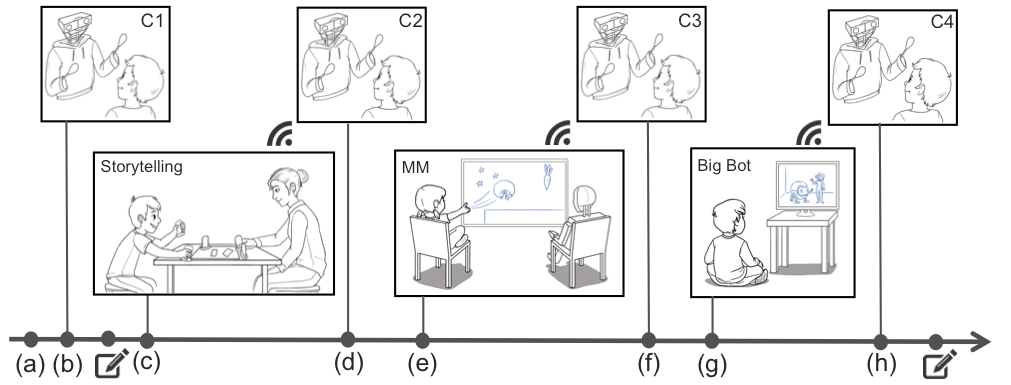Abstract

Persistent memory is a critical mechanism in long-term human-robot interaction. In this work, we investigate how a robot can use information from prior conversations with the same child to foster a sense of relationship over time. To address this question, we conducted a repeated interaction study with three experimental conditions: a baseline control condition, in which the robot retains no information between conversations and relies on a typical elicitation response paradigm; a persistence condition, in which children experience the same topic flow but with some robot turns that refer back to prior shared events; and a pro-active persistence condition, in which the robot attempts to offer its own feelings and opinions pro-actively and congruently with what it knows about the child. Our results indicate age differences with respect to the measures of interest. During conversations with the robot, older children who were assigned to the persistence conditions exhibited more positive affect, while younger children showed more positive affect in the control condition. Moreover, in a set of comparative judgments among robots they had played with, children in the augmented persistence condition considered PIPER to be the most intelligent and their favorite more often than children in the other conditions, overall, but the effect was more evident in the older children.
Copyright Notice
The documents contained in these directories are included by the contributing authors as a means to ensure timely dissemination of scholarly and technical work on a non-commercial basis. Copyright and all rights therein are maintained by the authors or by other copyright holders, notwithstanding that they have offered their works here electronically. It is understood that all persons copying this information will adhere to the terms and constraints invoked by each author’s copyright. These works may not be reposted without the explicit permission of the copyright holder.